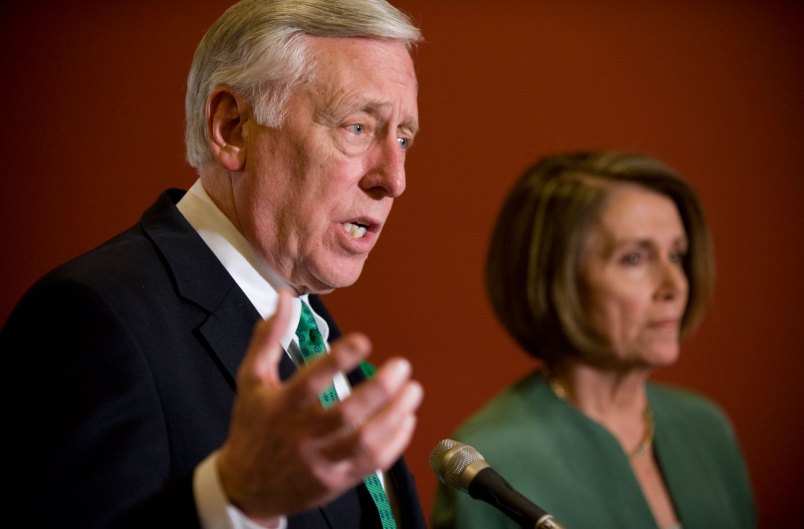As he presses Congress to let the Bush tax cuts for wealthy Americans expire, President Obama has two goals in mind: achieve a significant policy victory; and give struggling Democrats a wedge issue ahead of the November elections. But a significant number of those Democrats are saying they don’t want the help — and that number may be enough to force Democratic leaders to punt on the issue.
Rep. Michael McMahon (D-NY), who is fighting to preserve the top-bracket tax cuts for at least a year, says he has somewhere between 25 and 50 members on his side. “I think the difference is there,” he told TPM after a House vote yesterday afternoon.
McMahon is a signatory to a letter authored by Rep. Melissa Bean (D-IL) and others designed to pressure leaders to give wealthy Americans another tax break. His view represents a political and policy consensus shared by a significant, and vocal faction of the Democratic party — a consensus that party leaders are doing little to weaken.
“Sometimes we forget how we became the majority. We did it by winning some affluent districts,” Rep. Gerry Connolly told reporters earlier this month.
“I don’t think anybody considers the notion of higher taxes for anybody as a good thing or a winning political strategy,” McMahon said Wednesday.
“It’s a winning issue in most districts,” says a top Democratic strategist. But those districts where it’s not are often represented by members, like McMahon, trying to show their independence from their leadership.
In McMahon’s district, he says, a couple making $300,000 might still be living paycheck to paycheck. But freezing tax rates is important, in his view, to speed up the recovery nationally.
“It’s about the psychology of the market makers,” he argued. “And if you raise taxes now you’re going to see a lot of people hold on to their money, maybe move it offshore, not invest in their companies.”
That view is contrary to the one held by many leading economists and administration advisers, who argue that making sure low- and middle-income people have money to spend is the key to growth. But it is shared broadly by Democrats who want, at least temporarily, to extend tax cuts for the rich.
“The reality is that economic recovery frankly depends on people in the top bracket being very aggressive in terms of their spending and investing,” said Rep. Artur Davis (D-AL) in a brief interview with TPM yesterday afternoon. “It’s just the reality. That’s beyond politics. It’s just a fundamental matter of economics.”
Davis is retiring after losing the Democratic primary for governor in his state earlier this year. Freed from political constraints, he still wants to extend tax cuts for wealthy people for at least a year.
“There is obviously some political value in Democrats framing this as a defense of the middle class, versus Republicans who are only concerned about the wealthy,” Davis conceded. “[But] Democrats almost never win a fight about taxes. I can’t think of an election where Democrats have won a fight about taxes. If the subject is taxes, Democrats are usually in trouble.”
These members votes will be crucial if Democrats are going to pursue President Obama’s plan. He’s suggested a course that will make Republicans answer two separate questions: whether they support continuing tax cuts for everybody up to their first $250,000; and whether they support extra tax cuts benefiting only people making more than $250,000.
McMahon doesn’t want to do it that way. “I think we should do it all together.”
Leadership, for now, won’t say how they’re dealing with the dissent.
“One-hundred percent of Americans will benefit by not having taxes on the first $250,000 of income increase,” House Majority Leader Steny Hoyer told reporters yesterday in response to a question from TPMDC. “Members have to argue beyond that what their view is.”
“They are taking, they need to take, the position they believe is in the best interest of the country,” Hoyer added. “We’re having a lot of discussions on where we’re going to go.”










